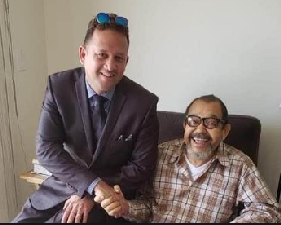Strengthening Medical Laboratory services in the Caribbean
NASSAU ,The Bahamas – Bahamas Senator the Honourable Dr. Bernard Nottage praised Caribbean countries for making positive and progressive steps in healthcare on Monday, May 1, 2006.
The Senator was speaking at the opening ceremony of the eighth and final module training program for Laboratory and Quality Managers, which involved 52 participants from 21 Caribbean countries.
According to Dr. Nottage, the training program is part of the Medical Laboratory Strengthening Project, which began four years ago and is funded by the European Union through the Caribbean Epidemiological Centre (CAREC), at a cost of $9.5 million and came about as a result of the findings by CAREC of the wide disparity in quality among laboratories throughout the Caribbean.
In underscoring the importance of the program, Dr. Nottage said that the main purpose of the project is the development of a cadre of laboratory personnel in the Caribbean to lead national efforts to implement standards in the medical laboratories; to design, develop and implement laboratory quality management systems and seek to develop quality management systems in clinical laboratories and a strong regional network of medical laboratories working together in the interest of public health.
“It is intended to assure both Caribbean nationals and those from outside the region that the same quality control and accuracy can be obtained from our national and regional laboratories whether in Bermuda, Belize, The Bahamas, Barbados or Anguilla and Barbuda as from first world laboratories.
“It also means that with illnesses such as HIV/AIDS, SARS the Pandemic Flu, which still looms large and the Avian Flu emerging as a deadly threat, our laboratories and particularly the person who manage them are properly trained, are able and are ready,” said the Senator.
He added that they will be adept in budgeting, laboratory design, workplace safety, writing skills and communication and all the other requisites from the proper functioning of a first class facility – which will be quite an achievement and long overdue.
Dr. Nottage praised the Bahamian team led by Dr. Andre Hanna saying that he was extremely proud of their achievements. These include:
• Creation of a Secretariat at the outset of the project, which indicated the country’s commitment to the project’s objectives and to the improvement of labs in The Bahamas.
• Training of four persons as laboratory and quality assurance managers who will assist persons with the ISO 156189 international standards for medical labs.
• Participation in most of the regional activities related to the project, thus benefiting from the regional experiences.
• Drafting of legislation to regulate laboratories in The Bahamas. The final draft is being prepared for onward submission to the Attorney General’s Office.
Dr. Nottage said that The Bahamas is one of the few countries to conduct a baseline survey to determine the gaps of administration and practice of medical laboratories. Based on the gaps identified, training was conducted for medical laboratory professionals, which began in 2005 and is ongoing. After complementing the delegates for undergoing training to become more proficient in their fields, Dr. Nottage pleaded with them to stay in their countries and utilize their ever-expanding skills at home.
“You are all aware of the damage that has been inflicted upon our developing societies by unmanaged migration… the brain drain!
“I don’t quite know how to urge you to use the knowledge and skills you have gained overall from this training to improve your communities, your country and the Caribbean region, when often the pull of greater material rewards and even professional satisfaction occasioned by work in the more developed countries are so attractive and the push brought about by the frustrations, which you face from the lack of funds, equipment and personnel.”

